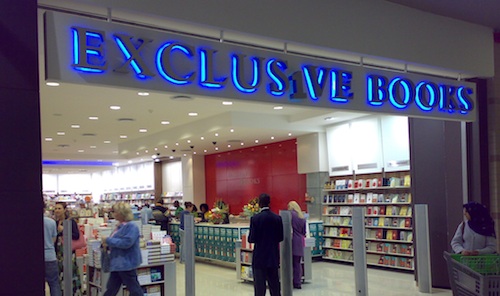
Electronic book readers, such as Amazon.com’s Kindle and Apple’s upcoming iPad, won’t kill physical book stores. But that doesn’t mean book stores don’t have to adapt to technological change.
That’s the view of Avusa Retail MD Fred Withers, who says Exclusive Books, a subsidiary of media group Avusa, will have a catalogue of about 60 000 e-books for sale on its website by December 2010 as it reacts to growing demand from consumers for digitally downloadable content.
Withers says Exclusive Books will begin selling e-books from next month to coincide with a relaunch of its website. Initially, the company will offer a “small range of e-books for download”. To start with, the catalogue will focus on romance fiction, a selection of mainstream fiction and nonfiction, and some locally published material.
This catalogue will be expanded throughout 2010, Withers says.
As for e-book readers, he says Exclusive Books is in “continuing discussions” with local representatives of the big hardware manufacturers.
“We are keen to introduce the sale of reader hardware to our customers, but will not do so unless the quality and after-sale service are assured and the prices are right.”
Withers says he expects that “e-books will change how books are published, sold and read”. But e-books will not replace physical books.
“Different readers will find different formats or platforms more suitable for different kinds of books or reading situations.”
US retailer Amazon.com helped pioneer the e-book reader market with its Kindle device, the screen of which uses e-ink technology to mimic physical paper.
Amazon recently disclosed that it sells more bestsellers in electronic form on the Kindle in the US than it does paper-based versions of the same books.
Sony is also a significant player in the e-book market, though its e-reader devices and online book store are not available to SA consumers.
Now Apple has entered the fray with the iPad tablet computer, the first versions of which will go on sale next month. A key feature of the iPad is an online book store, operated by Apple. It’s not yet known whether the Apple book store will be available to South Africans.
Despite the frenzy of activity, consumption of e-books worldwide “remains small in comparison with the overall book retail industry, and is largely confined to developed nations”, says Withers.
The market is also complicated by the fact that many e-book readers use their own document formats.
“Our research has shown that a lot of e-book consumption is still happening on PCs and laptops, with netbooks and cellphones also competing strongly against dedicated reader devices,” Withers says.
“The expectation is that 2010 will be the year of the slates and tablets, which may revolutionise electronic reading habits.”
Exclusive Books hopes to use its brand to make its presence felt in e-book sales in SA. “Because of the strong position of the Exclusive Books brand in the mind of the SA book buyer, we believe our customers will continue to look to us for information and products in the digital world, just as they do in the physical world,” Withers says.
“We furthermore believe that the future is a hybrid of digital and physical products, and that our extensive store network and real-world presence, augmented by a strong online offering, will stand us in good stead in the future marketplace,” he says.
But competing with international brands like Amazon will be difficult, especially since e-books can downloaded in an instant from servers anywhere in the world. Arthur Goldstuck, MD of technology research firm World Wide Worx, says if companies like Exclusive Books want to be successful in the e-book market, they have to undercut the big international players on price.
That will mean selling bestsellers for less than the US$10 (R77) they cost on Amazon. “If you can sell blockbuster novels as e-books for less than R70, you’re talking about a viable market,” Goldstuck says.
And getting access to bestsellers is also critical. “You can’t simply roll out a catalogue of older books,” he says. “You need the blockbusters to get people interested. Once they’re conditioned to reading new books, only then will they start building up their collections of older books.” — Duncan McLeod, TechCentral
- Image credit: Paul Jacobson; image licensed under Creative Commons
- Subscribe to our free daily newsletter
- Follow us on Twitter or on Facebook




